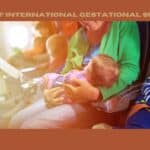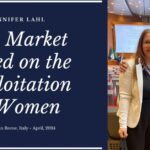
A piece just out in the LATimes (although the concept is not new) addresses the practice of only transferring a single embryo into the mother’s womb when carrying out IVF.
The author writes,
“data published in today’s edition of the New England Journal of Medicine show that what they’re really doing is increasing their odds of having twins — which is riskier for the mother and babies alike.”
This should be of no big surprise as we know that by design, a woman’s body is best suited for one baby at a time and not litters. And even a twin pregnancy naturally places the pregnant mother into a ‘high risk’ category for her health as well as the health of the babies she is carrying.
Here’s some data:
“A team of Swedish researchers is trying to assess the optimum number of embryos to transfer. In their study of 661 IVF patients, 331 women got two embryos, and 142 of them (or 43%) had live births. The other 330 women got a single embryo, and if that didn’t work, they made a second attempt. Of these women, 128 (or 39%) had live births.
The difference between 43% and 39% wasn’t statistically significant. But one-third of the patients in the double-embryo group had twins or triplets, compared with only 1% in the single-embryo group. Those results were published in 2004. Researchers continued to follow the 661 patients. Their conclusion, in the latest issue of the journal: There’s little downside and plenty of upside to transferring one embryo at a time instead of two.”
What do you think? Make sense to you?
Author Profile

- Jennifer Lahl, MA, BSN, RN, is founder and president of The Center for Bioethics and Culture Network. Lahl couples her 25 years of experience as a pediatric critical care nurse, a hospital administrator, and a senior-level nursing manager with a deep passion to speak for those who have no voice. Lahl’s writings have appeared in various publications including Cambridge University Press, the San Francisco Chronicle, the Dallas Morning News, and the American Journal of Bioethics. As a field expert, she is routinely interviewed on radio and television including ABC, CBS, PBS, and NPR. She is also called upon to speak alongside lawmakers and members of the scientific community, even being invited to speak to members of the European Parliament in Brussels to address issues of egg trafficking; she has three times addressed the United Nations during the Commission on the Status of Women on egg and womb trafficking.
Latest entries
 infertilityApril 23, 2024The Rise of International Gestational Surrogacy in the U.S.
infertilityApril 23, 2024The Rise of International Gestational Surrogacy in the U.S. Assisted Reproductive TechnologyApril 16, 2024Founder Jennifer Lahl’s Speech on Surrogacy to the Casablanca Declaration
Assisted Reproductive TechnologyApril 16, 2024Founder Jennifer Lahl’s Speech on Surrogacy to the Casablanca Declaration #BigFertilityFebruary 27, 2024No, Alabama Didn’t Ban IVF
#BigFertilityFebruary 27, 2024No, Alabama Didn’t Ban IVF ArticleSeptember 25, 2023The Little Engine That Could
ArticleSeptember 25, 2023The Little Engine That Could

